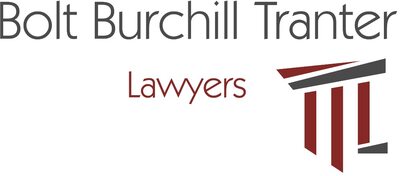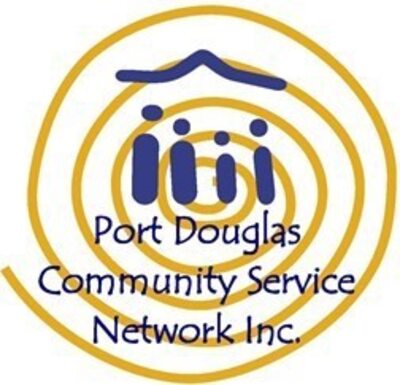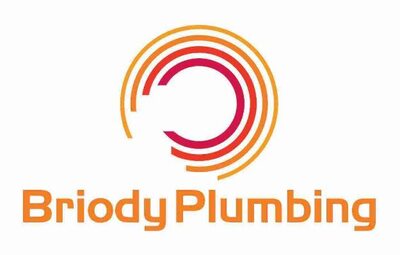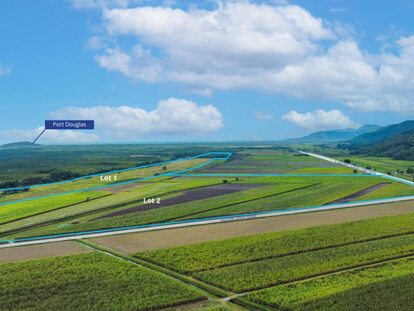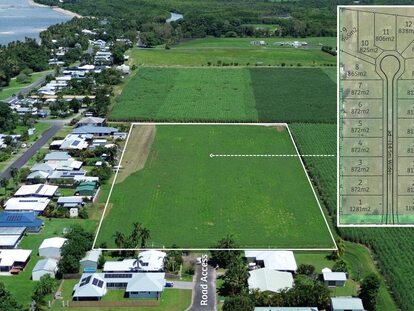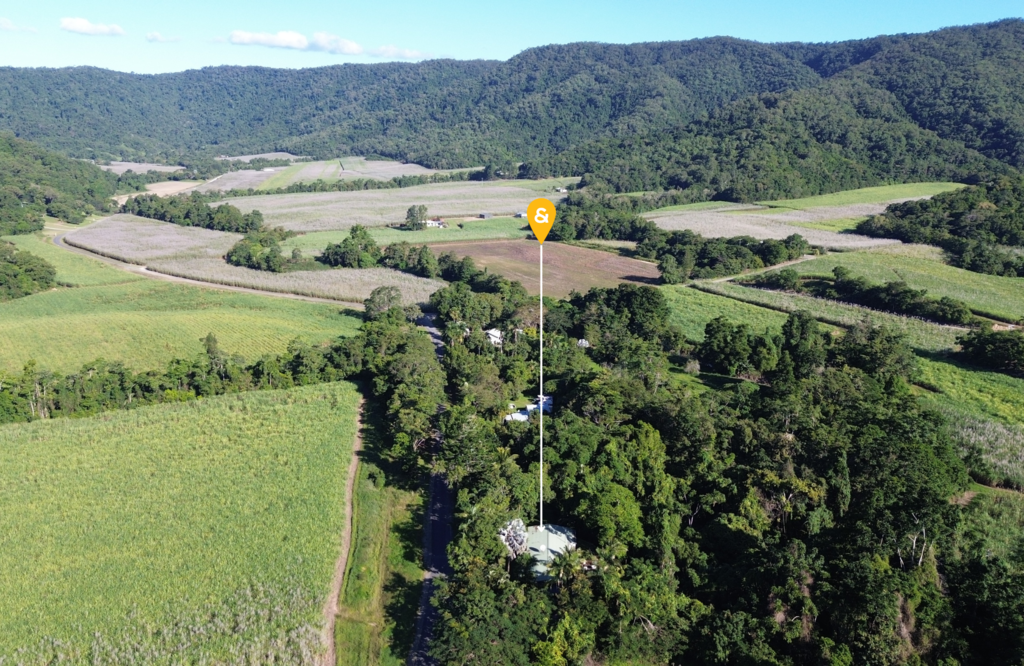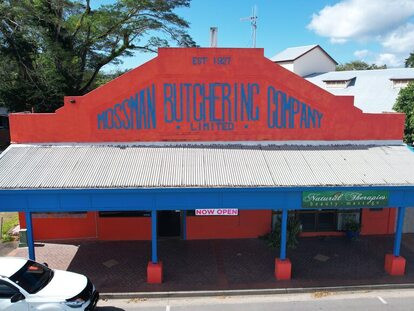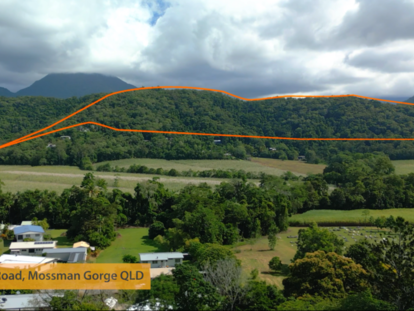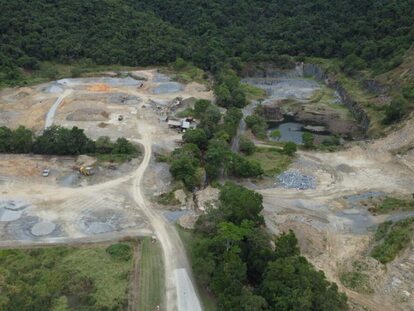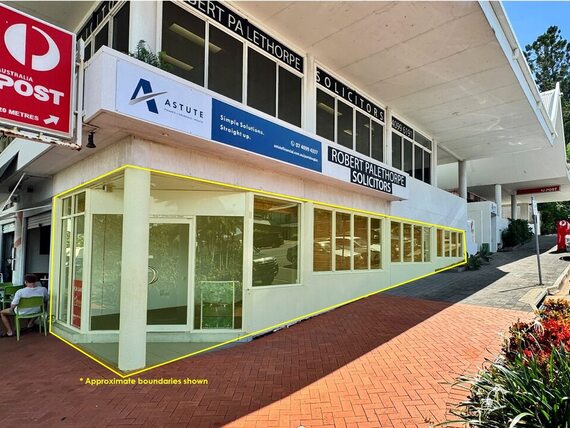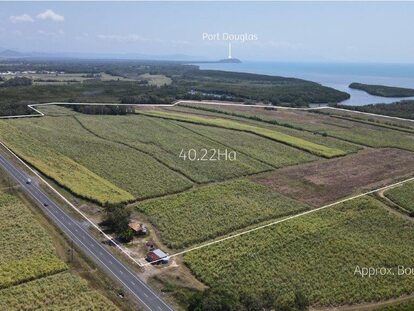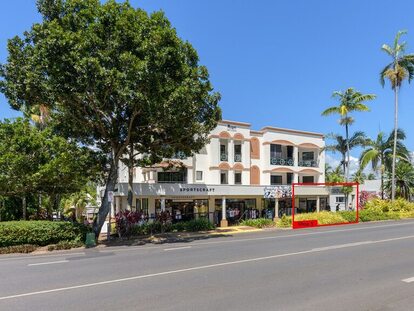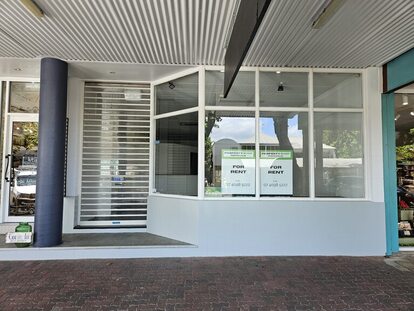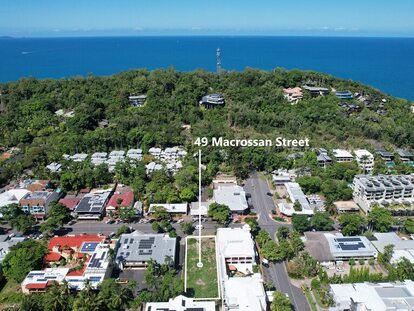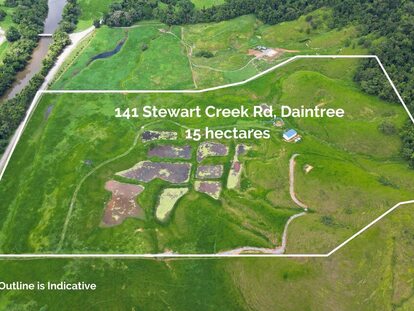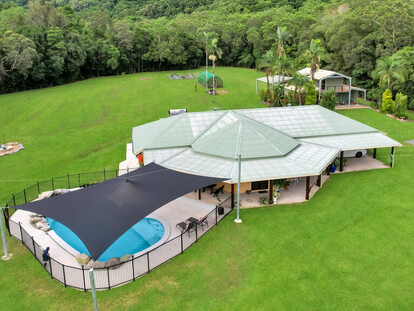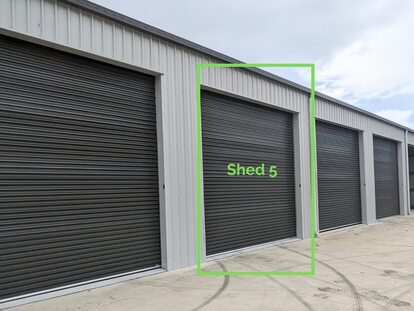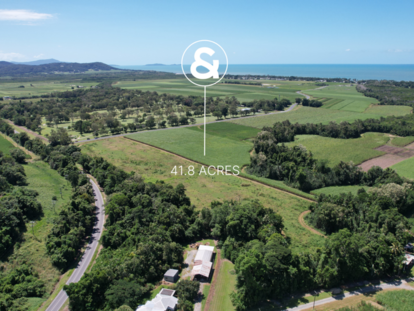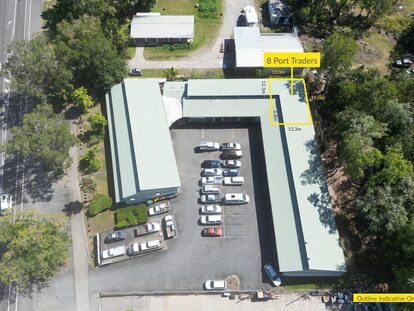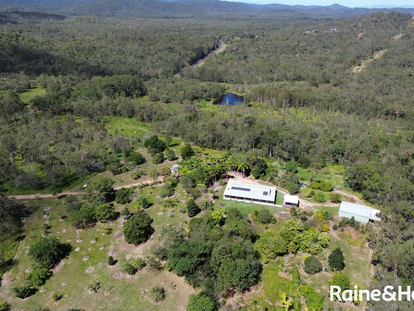|
(
69
)
|
Date
|
Start time
|
End time
|
Event name
|
Event description
|
Location
|
Cost
|
Website link
|
Event contact phone
|
Event contact email
|
Category (Maximum of 4 categories)
|
Terms and conditions
|
Name
|
Email
|
Phone
| |
|---|
| 1. |
Sunday 20 July 2025
2025-07-20T00:00:00+10:00
|
1 pm
|
5 pm
|
Comedy Night at The YACHTY
|
Get ready to laugh out loud at the
|
The YACHTY - Port Douglas Yacht Club - 1 spinnaker cl - Port Douglas
|
$ 20
|
https://www.trybooking.com/events/1426551/sessions/5723261/sections/2736406/tickets
|
0740994386
|
[email protected]
|
Arts & Culture, Family Event, Live Entertainment
| |
John Pooley
|
[email protected]
|
0740994386
| |
| 2. |
Sunday 31 August 2025
2025-08-31T00:00:00+10:00
|
2:00pm
|
5:30pm
|
80th birthday Major prize draw - $10,000 cash total in prizes
|
Club Mossman is turning 80 and is celebrating by giving away $10,000 cash! There will be 7 prize draws 2pm, 2:30pm, 3pm, 3:30pm, 4pm, 4:30pm with the main prize drawn at 5:30pm. Each draw will be for $1,000, if it is not claimed it will jackpot to the last draw at 5:30pm that starts at $4,000. Make sure you swipe your member card at the kiosk to the entry of the Club to register your electronic tickets from 10am on Sunday 31/8/25. Tickets can be accumulated by spending $20 in the club and swiping your member card. Terms and conditions can be found on our website clubmossman.com.au. Become a member today!
|
Club Mossman
|
Free
|
www.clubmossman.com.au
|
0740981434
|
[email protected]
|
Trivia & Games
| |
Melissa Di Pietro
|
[email protected]
|
0740981434
| |
| 3. |
Tuesday 15 July 2025
2025-07-15T00:00:00+10:00
|
1:00pm
|
4:00pm
|
Four Mile Beach Monthly Clean-up
|
Looking for a way to be part of practical solutions for our environment? Four Mile Beach in Port Douglas is one of our longest-running QLD beach monitoring sites. We have been cleaning and collecting data from this site each month for the past 12 years.
Volunteers need to wear enclosed shoes, bring sun/rain protection, and plenty of drinking water (1 to 2 litres is recommended). We try to ensure that all Tangaroa Blue events are free from single-use plastic, so bring along your reusable water bottle. All equipment and drinking water top-ups will be provided.
To register or for any questions, please email [email protected].
|
Daintree Lounge at the Sheraton Grand Mirage, Port Douglas (behind the piano)
|
Free
|
https://tangaroablue.org/events-calendar/four-mile-beach-monthly-cleanup-july/
| |
[email protected]
|
Community Event, Free Event
| |
Lucy
|
[email protected]
|
0431870165
| |
| 4. |
Sunday 24 August 2025
2025-08-24T00:00:00+10:00
|
4:00pm
|
6:00pm
|
80th birthday giant prize giveaway
|
Club Mossman is turning 80 and is celebrating by holding weekly prize draws every Sunday. There will be 3 prize draws 4pm, 5pm and 6pm. Make sure you swipe your member card at the kiosk to the entry of the Club to register your electronic tickets from 1pm each Sunday. Tickets can be accumulated by spending $20 in the club and swiping your member card. Prizes have been supplied by our local business partners and a full list can be found on our website clubmossman.com.au. Major Prize draw will be held on Sunday 31/8/25 from 2pm onwards. Become a member today!
|
Club Mossman
|
Free
|
www.clubmossman.com.au
|
0740981434
|
[email protected]
|
Trivia & Games
| |
Melissa Di Pietro
|
[email protected]
|
0740981434
| |
| 5. |
Sunday 17 August 2025
2025-08-17T00:00:00+10:00
|
4:00pm
|
6:00pm
|
80th birthday giant prize giveaway
|
Club Mossman is turning 80 and is celebrating by holding weekly prize draws every Sunday. There will be 3 prize draws 4pm, 5pm and 6pm. Make sure you swipe your member card at the kiosk to the entry of the Club to register your electronic tickets from 1pm each Sunday. Tickets can be accumulated by spending $20 in the club and swiping your member card. Prizes have been supplied by our local business partners and a full list can be found on our website clubmossman.com.au. Major Prize draw will be held on Sunday 31/8/25 from 2pm onwards. Become a member today!
|
Club Mossman
|
Free
|
www.clubmossman.com.au
|
0740981434
|
[email protected]
|
Trivia & Games
| |
Melissa Di Pietro
|
[email protected]
|
0740981434
| |
| 6. |
Sunday 10 August 2025
2025-08-10T00:00:00+10:00
|
4:00pm
|
6:00pm
|
80th birthday giant prize giveaway
|
Club Mossman is turning 80 and is celebrating by holding weekly prize draws every Sunday. There will be 3 prize draws 4pm, 5pm and 6pm. Make sure you swipe your member card at the kiosk to the entry of the Club to register your electronic tickets from 1pm each Sunday. Tickets can be accumulated by spending $20 in the club and swiping your member card. Prizes have been supplied by our local business partners and a full list can be found on our website clubmossman.com.au. Major Prize draw will be held on Sunday 31/8/25 from 2pm onwards. Become a member today!
|
Club Mossman
|
Free
|
www.clubmossman.com.au
|
0740981434
|
[email protected]
|
Trivia & Games
| |
Melissa Di Pietro
|
[email protected]
|
0740981434
| |
| 7. |
Sunday 3 August 2025
2025-08-03T00:00:00+10:00
|
4:00pm
|
6:00pm
|
80th birthday giant prize giveaway
|
Club Mossman is turning 80 and is celebrating by holding weekly prize draws every Sunday. There will be 3 prize draws 4pm, 5pm and 6pm. Make sure you swipe your member card at the kiosk to the entry of the Club to register your electronic tickets from 1pm each Sunday. Tickets can be accumulated by spending $20 in the club and swiping your member card. Prizes have been supplied by our local business partners and a full list can be found on our website clubmossman.com.au. Major Prize draw will be held on Sunday 31/8/25 from 2pm onwards. Become a member today!
|
Club Mossman
|
Free
|
www.clubmossman.com.au
|
0740981434
|
[email protected]
|
Trivia & Games
| |
Melissa Di Pietro
|
[email protected]
|
0740981434
| |
| 8. |
Sunday 27 July 2025
2025-07-27T00:00:00+10:00
|
4:00pm
|
6:00pm
|
80th birthday giant prize giveaway
|
Club Mossman is turning 80 and is celebrating by holding weekly prize draws every Sunday. There will be 3 prize draws 4pm, 5pm and 6pm. Make sure you swipe your member card at the kiosk to the entry of the Club to register your electronic tickets from 1pm each Sunday. Tickets can be accumulated by spending $20 in the club and swiping your member card. Prizes have been supplied by our local business partners and a full list can be found on our website clubmossman.com.au. Major Prize draw will be held on Sunday 31/8/25 from 2pm onwards. Become a member today!
|
Club Mossman
|
Free
|
www.clubmossman.com.au
|
0740981434
|
[email protected]
|
Trivia & Games
| |
Melissa Di Pietro
|
[email protected]
|
0740981434
| |
| 9. |
Sunday 20 July 2025
2025-07-20T00:00:00+10:00
|
4:00pm
|
6:00pm
|
80th birthday giant prize giveaway
|
Club Mossman is turning 80 and is celebrating by holding weekly prize draws every Sunday. There will be 3 prize draws 4pm, 5pm and 6pm. Make sure you swipe your member card at the kiosk to the entry of the Club to register your electronic tickets from 1pm each Sunday. Tickets can be accumulated by spending $20 in the club and swiping your member card. Prizes have been supplied by our local business partners and a full list can be found on our website clubmossman.com.au. Major Prize draw will be held on Sunday 31/8/25 from 2pm onwards. Become a member today!
|
Club Mossman
|
Free
|
www.clubmossman.com.au
|
0740981434
|
[email protected]
|
Trivia & Games
| |
Melissa Di Pietro
|
[email protected]
|
0740981434
| |
| 10. |
Sunday 13 July 2025
2025-07-13T00:00:00+10:00
|
4:00pm
|
6:00pm
|
80th birthday giant prize giveaway
|
Club Mossman is turning 80 and is celebrating by holding weekly prize draws every Sunday. There will be 3 prize draws 4pm, 5pm and 6pm. Make sure you swipe your member card at the kiosk to the entry of the Club to register your electronic tickets from 1pm each Sunday. Tickets can be accumulated by spending $20 in the club and swiping your member card. Prizes have been supplied by our local business partners and a full list can be found on our website clubmossman.com.au. Major Prize draw will be held on Sunday 31/8/25 from 2pm onwards. Become a member today!
|
Club Mossman
|
Free
|
www.clubmossman.com.au
|
0740981434
|
[email protected]
|
Trivia & Games
| |
Melissa Di Pietro
|
[email protected]
|
0740981434
| |
| 11. |
Sunday 6 July 2025
2025-07-06T00:00:00+10:00
|
4:00pm
|
6:00pm
|
80th birthday giant prize giveaway
|
Club Mossman is turning 80 and is celebrating by holding weekly prize draws every Sunday starting 6/7/25. There will be 3 prize draws 4pm, 5pm and 6pm. Make sure you swipe your member card at the kiosk to the entry of the Club to register your electronic tickets from 1pm each Sunday. Tickets can be accumulated by spending $20 in the club and swiping your member card. Prizes have been supplied by our local business partners and a full list can be found on our website clubmossman.com.au. Major Prize draw will be held on Sunday 31/8/25 from 2pm onwards. Become a member today!
|
Club Mossman
|
Free
|
www.clubmossman.com.au
|
0740981434
|
[email protected]
|
Trivia & Games
| |
Melissa Di Pietro
|
[email protected]
|
0740981434
| |
| 12. |
Saturday 19 July 2025
2025-07-19T00:00:00+10:00
|
6:30pm
|
9:30pm
|
MONTHLY SOCIAL DANCING
|
Come and dance with us. Free 30 min Dance Class. Learn new dance, while having your delicious meals and enjoying your favorite drink. Come with your friends or love ones. FREE ENTRY. At the Pullman Sea Temple Resorts. See you there.
|
Pullman Sea Temple Resort
|
Free
|
https://www.facebook.com/share/1AhyLqhqwX/
|
0423453329
|
[email protected]
|
Community Event, Family Event, Free Event, Live Entertainment
| |
Jeanfer Salas
|
[email protected]
|
0423453329
| |
| 13. |
Monday 14 July 2025
2025-07-14T00:00:00+10:00
|
9am
|
3pm
|
First Minutes Matter
|
Survival starts on the ground.
LifeFlight connects all Queenslanders to the best possible medical care. In the first critical minutes after an emergency, that care will come from you.
At a FREE First Minutes Matter trauma training workshop, you'll learn practical skills to manage life-threatening events like snake bites, farming accidents, strokes and car crashes.
Drawing from decades of experience in emergency medicine, our educators will empower you to make a difference in the moment.
At a workshop, participants will learn about:
Personal, Road & Aircraft Safety
Burns
Bleeding
Snake bites
Choking & Anaphylaxis
Strokes, Seizures & Febrile Convulsions
CPR & AED's
Emergency Equipment
Wellbeing
To register or find out more, visit firstminutesmatter.org.au.
|
Port Douglas Community - Hall Cnr Mowbray & Munro Streets
|
FREE
|
https://www.lifeflight.org.au/first-minutes-matter/in-person-workshop/list/
|
N/A
|
[email protected]
|
Workshop or Training
| |
Sarah Assink
|
[email protected]
|
0497977952
| |
| 14. |
Thursday 18 December 2025
2025-12-18T00:00:00+10:00
|
7:00pm
|
8:30pm
|
Trivia with Supa Sal and Wevs
|
Trivia with Sup Sal and Wevs at Club Mossman. Join the fun and the chance to win great prizes and cash. Try our new Bistro menu, open from 5:30pm.
|
Club Mossman
|
$5 per person
|
www.clubmossman.com.au
|
0740981434
|
[email protected]
|
Trivia & Games
| |
Melissa Di Pietro
|
[email protected]
|
0740981434
| |
| 15. |
Thursday 4 December 2025
2025-12-04T00:00:00+10:00
|
7:00pm
|
8:30pm
|
Trivia with Supa Sal and Wevs
|
Trivia with Sup Sal and Wevs at Club Mossman. Join the fun and the chance to win great prizes and cash. Try our new Bistro menu, open from 5:30pm.
|
Club Mossman
|
$5 per person
|
www.clubmossman.com.au
|
0740981434
|
[email protected]
|
Trivia & Games
| |
Melissa Di Pietro
|
[email protected]
|
0740981434
| |
| 16. |
Thursday 20 November 2025
2025-11-20T00:00:00+10:00
|
7:00pm
|
8:30pm
|
Trivia with Supa Sal and Wevs
|
Trivia with Sup Sal and Wevs at Club Mossman. Join the fun and the chance to win great prizes and cash. Try our new Bistro menu, open from 5:30pm.
|
Club Mossman
|
$5 per person
|
www.clubmossman.com.au
|
0740981434
|
[email protected]
|
Trivia & Games
| |
Melissa Di Pietro
|
[email protected]
|
0740981434
| |
| 17. |
Thursday 6 November 2025
2025-11-06T00:00:00+10:00
|
7:00pm
|
8:30pm
|
Trivia with Supa Sal and Wevs
|
Trivia with Sup Sal and Wevs at Club Mossman. Join the fun and the chance to win great prizes and cash. Try our new Bistro menu, open from 5:30pm.
|
Club Mossman
|
$5 per person
|
www.clubmossman.com.au
|
0740981434
|
[email protected]
|
Trivia & Games
| |
Melissa Di Pietro
|
[email protected]
|
0740981434
| |
| 18. |
Thursday 23 October 2025
2025-10-23T00:00:00+10:00
|
7:00pm
|
8:30pm
|
Trivia with Supa Sal and Wevs
|
Trivia with Sup Sal and Wevs at Club Mossman. Join the fun and the chance to win great prizes and cash. Try our new Bistro menu, open from 5:30pm.
|
Club Mossman
|
$5 per person
|
www.clubmossman.com.au
|
0740981434
|
[email protected]
|
Trivia & Games
| |
Melissa Di Pietro
|
[email protected]
|
0740981434
| |
| 19. |
Thursday 9 October 2025
2025-10-09T00:00:00+10:00
|
7:00pm
|
8:30pm
|
Trivia with Supa Sal and Wevs
|
Trivia with Sup Sal and Wevs at Club Mossman. Join the fun and the chance to win great prizes and cash. Try our new Bistro menu, open from 5:30pm.
|
Club Mossman
|
$5 per person
|
www.clubmossman.com.au
|
0740981434
|
[email protected]
|
Trivia & Games
| |
Melissa Di Pietro
|
[email protected]
|
0740981434
| |
| 20. |
Thursday 25 September 2025
2025-09-25T00:00:00+10:00
|
7:00pm
|
8:30pm
|
Trivia with Supa Sal and Wevs
|
Trivia with Sup Sal and Wevs at Club Mossman. Join the fun and the chance to win great prizes and cash. Try our new Bistro menu, open from 5:30pm.
|
Club Mossman
|
$5 per person
|
www.clubmossman.com.au
|
0740981434
|
[email protected]
|
Trivia & Games
| |
Melissa Di Pietro
|
[email protected]
|
0740981434
| |
| 21. |
Thursday 11 September 2025
2025-09-11T00:00:00+10:00
|
7:00pm
|
8:30pm
|
Trivia with Supa Sal and Wevs
|
Trivia with Sup Sal and Wevs at Club Mossman. Join the fun and the chance to win great prizes and cash. Try our new Bistro menu, open from 5:30pm.
|
Club Mossman
|
$5 per person
|
www.clubmossman.com.au
|
0740981434
|
[email protected]
|
Trivia & Games
| |
Melissa Di Pietro
|
[email protected]
|
0740981434
| |
| 22. |
Thursday 28 August 2025
2025-08-28T00:00:00+10:00
|
7:00pm
|
8:30pm
|
Trivia with Supa Sal and Wevs
|
Trivia with Sup Sal and Wevs at Club Mossman. Join the fun and the chance to win great prizes and cash. Try our new Bistro menu, open from 5:30pm.
|
Club Mossman
|
$5 per person
|
www.clubmossman.com.au
|
0740981434
|
[email protected]
|
Trivia & Games
| |
Melissa Di Pietro
|
[email protected]
|
0740981434
| |
| 23. |
Thursday 14 August 2025
2025-08-14T00:00:00+10:00
|
7:00pm
|
8:30pm
|
Trivia with Supa Sal and Wevs
|
Trivia with Sup Sal and Wevs at Club Mossman. Join the fun and the chance to win great prizes and cash. Try our new Bistro menu, open from 5:30pm.
|
Club Mossman
|
$5 per person
|
www.clubmossman.com.au
|
0740981434
|
[email protected]
|
Trivia & Games
| |
Melissa Di Pietro
|
[email protected]
|
0740981434
| |
| 24. |
Thursday 31 July 2025
2025-07-31T00:00:00+10:00
|
7:00pm
|
8:30pm
|
Trivia with Supa Sal and Wevs
|
Trivia with Sup Sal and Wevs at Club Mossman. Join the fun and the chance to win great prizes and cash. Try our new Bistro menu, open from 5:30pm.
|
Club Mossman
|
$5 per person
|
www.clubmossman.com.au
|
0740981434
|
[email protected]
|
Trivia & Games
| |
Melissa Di Pietro
|
[email protected]
|
0740981434
| |
| 25. |
Thursday 17 July 2025
2025-07-17T00:00:00+10:00
|
7:00pm
|
8:30pm
|
Trivia with Supa Sal and Wevs
|
Trivia with Sup Sal and Wevs at Club Mossman. Join the fun and the chance to win great prizes and cash. Try our new Bistro menu, open from 5:30pm.
|
Club Mossman
|
$5 per person
|
www.clubmossman.com.au
|
0740981434
|
[email protected]
|
Trivia & Games
| |
Melissa Di Pietro
|
[email protected]
|
0740981434
| |
| 26. |
Thursday 3 July 2025
2025-07-03T00:00:00+10:00
|
7:00pm
|
8:30pm
|
Trivia with Supa Sal and Wevs
|
Trivia with Sup Sal and Wevs at Club Mossman. Join the fun and the chance to win great prizes and cash. Try our new Bistro menu, open from 5:30pm.
|
Club Mossman
|
$5 per person
|
www.clubmossman.com.au
|
0740981434
|
[email protected]
|
Trivia & Games
| |
Melissa Di Pietro
|
[email protected]
|
0740981434
| |
| 27. |
Wednesday 9 July 2025
2025-07-09T00:00:00+10:00
|
8:00pm
|
10:30pm
|
State of Origin 3 and prize draw at half time of the XXXX Win a Townsville Footy Trip for Two
|
Be sure to come down to Club Mossman for the big decider State of Origin 3 live on the big screen. Kick off time is 8:05pm, Bistro is open from 5:30pm. The prize draw of the XXXX Win a Townsville Footy Trip for Two will take place at half time and there will be jerseys to be won as well. Ice cold beer, great food and if you are here at the prize draw and your name is chosen, you will win an additional prize of a $200 Club Mossman voucher! See you there to cheer on the Maroons!
|
Club Mossman
|
Free
|
www.clubmossman.com.au
|
0740981434
|
[email protected]
|
Live Entertainment
| |
Melissa Di Pietro
|
[email protected]
|
0740981434
| |
| 28. |
Thursday 11 December 2025
2025-12-11T00:00:00+10:00
|
7:00pm
|
9:00pm
|
Bingo
|
Enjoy a fun night of Bingo with your friends at Club Mossman. Cost $1 - $5 depending on book size. Bistro is open from 5:30pm and bookings can be made via our website clubmossman.com.au
|
Club Mossman
|
$1-$15 according to book size
|
www.clubmossman.com.au
|
0740981434
|
[email protected]
|
Trivia & Games
| |
Melissa Di Pietro
|
[email protected]
|
0740981434
| |
| 29. |
Thursday 27 November 2025
2025-11-27T00:00:00+10:00
|
7:00pm
|
9:00pm
|
Bingo
|
Enjoy a fun night of Bingo with your friends at Club Mossman. Cost $1 - $5 depending on book size. Bistro is open from 5:30pm and bookings can be made via our website clubmossman.com.au
|
Club Mossman
|
$1-$15 according to book size
|
www.clubmossman.com.au
|
0740981434
|
[email protected]
|
Trivia & Games
| |
Melissa Di Pietro
|
[email protected]
|
0740981434
| |
| 30. |
Thursday 13 November 2025
2025-11-13T00:00:00+10:00
|
7:00pm
|
9:00pm
|
Bingo
|
Enjoy a fun night of Bingo with your friends at Club Mossman. Cost $1 - $5 depending on book size. Bistro is open from 5:30pm and bookings can be made via our website clubmossman.com.au
|
Club Mossman
|
$1-$15 according to book size
|
www.clubmossman.com.au
|
0740981434
|
[email protected]
|
Trivia & Games
| |
Melissa Di Pietro
|
[email protected]
|
0740981434
| |
| 31. |
Thursday 30 October 2025
2025-10-30T00:00:00+10:00
|
7:00pm
|
9:00pm
|
Bingo
|
Enjoy a fun night of Bingo with your friends at Club Mossman. Cost $1 - $5 depending on book size. Bistro is open from 5:30pm and bookings can be made via our website clubmossman.com.au
|
Club Mossman
|
$1-$15 according to book size
|
www.clubmossman.com.au
|
0740981434
|
[email protected]
|
Trivia & Games
| |
Melissa Di Pietro
|
[email protected]
|
0740981434
| |
| 32. |
Thursday 16 October 2025
2025-10-16T00:00:00+10:00
|
7:00pm
|
9:00pm
|
Bingo
|
Enjoy a fun night of Bingo with your friends at Club Mossman. Cost $1 - $5 depending on book size. Bistro is open from 5:30pm and bookings can be made via our website clubmossman.com.au
|
Club Mossman
|
$1-$15 according to book size
|
www.clubmossman.com.au
|
0740981434
|
[email protected]
|
Trivia & Games
| |
Melissa Di Pietro
|
[email protected]
|
0740981434
| |
| 33. |
Thursday 2 October 2025
2025-10-02T00:00:00+10:00
|
7:00pm
|
9:00pm
|
Bingo
|
Enjoy a fun night of Bingo with your friends at Club Mossman. Cost $1 - $5 depending on book size. Bistro is open from 5:30pm and bookings can be made via our website clubmossman.com.au
|
Club Mossman
|
$1-$15 according to book size
|
www.clubmossman.com.au
|
0740981434
|
[email protected]
|
Trivia & Games
| |
Melissa Di Pietro
|
[email protected]
|
0740981434
| |
| 34. |
Thursday 18 September 2025
2025-09-18T00:00:00+10:00
|
7:00pm
|
9:00pm
|
Bingo
|
Enjoy a fun night of Bingo with your friends at Club Mossman. Cost $1 - $5 depending on book size. Bistro is open from 5:30pm and bookings can be made via our website clubmossman.com.au
|
Club Mossman
|
$1-$15 according to book size
|
www.clubmossman.com.au
|
0740981434
|
[email protected]
|
Trivia & Games
| |
Melissa Di Pietro
|
[email protected]
|
0740981434
| |
| 35. |
Thursday 4 September 2025
2025-09-04T00:00:00+10:00
|
7:00pm
|
9:00pm
|
Bingo
|
Enjoy a fun night of Bingo with your friends at Club Mossman. Cost $1 - $5 depending on book size. Bistro is open from 5:30pm and bookings can be made via our website clubmossman.com.au
|
Club Mossman
|
$1-$15 according to book size
|
www.clubmossman.com.au
|
0740981434
|
[email protected]
|
Trivia & Games
| |
Melissa Di Pietro
|
[email protected]
|
0740981434
| |
| 36. |
Thursday 21 August 2025
2025-08-21T00:00:00+10:00
|
7:00pm
|
9:00pm
|
Bingo
|
Enjoy a fun night of Bingo with your friends at Club Mossman. Cost $1 - $5 depending on book size. Bistro is open from 5:30pm and bookings can be made via our website clubmossman.com.au
|
Club Mossman
|
$1-$15 according to book size
|
www.clubmossman.com.au
|
0740981434
|
[email protected]
|
Trivia & Games
| |
Melissa Di Pietro
|
[email protected]
|
0740981434
| |
| 37. |
Thursday 7 August 2025
2025-08-07T00:00:00+10:00
|
7:00pm
|
9:00pm
|
Bingo
|
Enjoy a fun night of Bingo with your friends at Club Mossman. Cost $1 - $5 depending on book size. Bistro is open from 5:30pm and bookings can be made via our website clubmossman.com.au
|
Club Mossman
|
$1-$15 according to book size
|
www.clubmossman.com.au
|
0740981434
|
[email protected]
|
Trivia & Games
| |
Melissa Di Pietro
|
[email protected]
|
0740981434
| |
| 38. |
Thursday 24 July 2025
2025-07-24T00:00:00+10:00
|
7:00pm
|
9:00pm
|
Bingo
|
Enjoy a fun night of Bingo with your friends at Club Mossman. Cost $1 - $5 depending on book size. Bistro is open from 5:30pm and bookings can be made via our website clubmossman.com.au
|
Club Mossman
|
$1-$15 according to book size
|
www.clubmossman.com.au
|
0740981434
|
[email protected]
|
Trivia & Games
| |
Melissa Di Pietro
|
[email protected]
|
0740981434
| |
| 39. |
Thursday 10 July 2025
2025-07-10T00:00:00+10:00
|
7:00pm
|
9:00pm
|
Bingo
|
Enjoy a fun night of Bingo with your friends at Club Mossman. Cost $1 - $5 depending on book size. Bistro is open from 5:30pm and bookings can be made via our website clubmossman.com.au
|
Club Mossman
|
$1-$15 according to book size
|
www.clubmossman.com.au
|
0740981434
|
[email protected]
|
Trivia & Games
| |
Melissa Di Pietro
|
[email protected]
|
0740981434
| |
| 40. |
Sunday 27 July 2025
2025-07-27T00:00:00+10:00
|
4:00pm
|
7:00pm
|
Phil King
|
Phil King is back live and local at Club Mossman. Performing sixties and country favourites, Phil provides a great array of music to have you dancing and singing along. Chef's Specials on offer in the Bistro for dinner, opens at 5:30pm. Book online to secure your table clubmossman.com.au.
|
Club Mossman
|
Free
|
www.clubmossman.com.au
|
0740981434
|
[email protected]
|
Live Entertainment
| |
Melissa Di Pietro
|
[email protected]
|
0740981434
| |
| 41. |
Sunday 20 July 2025
2025-07-20T00:00:00+10:00
|
4:00pm
|
7:00pm
|
Becks
|
Live and local at Club Mossman, solo artist Becks will be playing from 4pm. Enjoy a chilled Sunday Session and stay for dinner, Bistro opens at 5:30pm. Book online clubmossman.com.au.
|
Club Mossman
|
Free
|
www.clubmossman.com.au
|
0740981434
|
[email protected]
|
Live Entertainment
| |
Melissa Di Pietro
|
[email protected]
|
0740981434
| |
| 42. |
Sunday 13 July 2025
2025-07-13T00:00:00+10:00
|
3:00pm
|
6:00pm
|
Katie Richards
|
Katie Richards has been a full time Musician for over 10 years travelling with her music around Australia and New Zealand. With her calming, strong, on key vocals, light percussion, guitar and harmonies, Katie is the complete package. Don't miss seeing her perform at Club Mossman live and local at 3pm for Sunday session. Chef's Specials on offer in the Bistro for lunch from 11:30am and dinner from 5:30pm. Book online to secure your table clubmossman.com.au.
|
Club Mossman
|
Free
|
www.clubmossman.com.au
|
0740981434
|
[email protected]
|
Live Entertainment
| |
Melissa Di Pietro
|
[email protected]
|
0740981434
| |
| 43. |
Sunday 6 July 2025
2025-07-06T00:00:00+10:00
|
4:00pm
|
7:00pm
|
Shanice Duo
|
Shanice Duo will be performing at Club Mossman providing an array of music to cater to all tastes. Chef's Specials on offer in the Bistro for dinner, opens at 5:30pm. Book online to secure your table clubmossman.com.au.
|
Club Mossman
|
Free
|
www.clubmossman.com.au
|
0740981434
|
[email protected]
|
Live Entertainment
| |
Melissa Di Pietro
|
[email protected]
|
0740981434
| |
| 44. |
Saturday 9 August 2025
2025-08-09T00:00:00+10:00
|
5pm
|
930pm
|
Miallo State School Trivia Night
|
Trivia Night
Miallo State School Fundraiser Event
Proceeds will support our goal of providing a new Junior Playground for hour school.
BOOK DINNER
BAR
SILENT AUCTION
TRIVIA
|
Miallo State School
|
Trivia Night $10 per person. Dinner $15 for adults and $10 children
|
https://ordering.flexischools.com.au/m/miallo-state-school-p-c-events-miallo-p-c-trivia-night
|
(07) 4099 9333
|
[email protected]
|
Community Event, Family Event, Trivia & Games
| |
Marcus Wilson
|
[email protected]
|
0414577628
| |
| 45. |
Wednesday 16 July 2025
2025-07-16T00:00:00+10:00
|
6.30pm
|
9.30pm
|
Tropical Animal Rehabilitation Centre (TARC) Trivia Night
|
Hosted by K-Star, join us for a night of raffles, auctions, door prizes and all round good fun!
The raised funds will be dedicated to providing the highest quality care for displaced, injured, sick or orphaned native Australian wildlife that enters our facility.
|
Central Hotel Port Douglas
|
$10 per player - Maximum 10 per team
| |
04343720240
|
[email protected]
|
Trivia & Games
| |
Trent Berry
|
[email protected]
|
07 4088 1525
| |
| 46. |
Saturday 5 July 2025
2025-07-05T00:00:00+10:00
|
5:30pm
|
8:30pm
|
The Davie Smith Duo @ Ellis Beach Bar & Grill
|
It's Saturday Live Music at Ellis Beach Bar & Grill 5:30pm - 8:30pm with the Davie Smith Duo!!
It's Classic Rock, Blues & Soul on the mainstage!
What else is on this Saturday?
• FREE Pancakes for the Kids** - From 7am to 11.30am
• $25 Crispy Squid Plate - From 12pm - 8pm
Don't feel like driving? Our courtesy bus will be operating 12:00pm - 9:00pm with pickups from Palm Cove, Clifton Beach, Kewarra Beach* & Trinity Beach*; Just call when you're ready to go!
*5 people or more
Check out our website for upcoming events, menus, specials and more!
https://ellisbeachbarandgrill.com.au/live-music-ellis-beach-cairns/
**Purchase any main meal and your child eats for free, under 14yo. Not available in conjunction with any other specials/deals.
|
Ellis Beach Bar & Grill
| |
https://www.entertainmentcairns.com/ellis-beach-bar-grill
| |
[email protected]
|
Free Event, Live Entertainment
| |
Jesse McClelland
|
[email protected]
|
40553534
| |
| 47. |
Sunday 31 August 2025
2025-08-31T00:00:00+10:00
|
4pm
|
8pm
|
TUSK – The Fleetwood Mac Tribute | Live at The YACHTY
|
Get ready for a night of timeless music and powerful nostalgia as TUSK – The Fleetwood Mac Tribute Show brings the magic of one of the world’s greatest bands to Port Douglas Yacht Club. Celebrating 50 years of hits, TUSK delivers a stunning recreation of Fleetwood Mac’s iconic sound, energy, and emotion.
Led by the phenomenal Penni Jones as Stevie Nicks, this all-star group has toured nationally for over a decade, earning a reputation as Australia’s #1 Fleetwood Mac experience. Expect all the classics — Dreams, Go Your Own Way, Landslide, Rhiannon, Don’t Stop, and many more — in a full concert-style performance that will have you singing, swaying, and maybe shedding a tear or two.
One night only. One unforgettable show.
Doors: 4pm
Support: 5:00pm - 6:00pm
Fleetwood Mac: 6:30pm - 8:00pm
|
The YACHTY - Port Douglas Yacht Club - 1 spinnaker cl - Port Douglas
| |
https://www.eventbrite.com.au/e/tusk-the-fleetwood-mac-tribute-live-at-port-douglas-yacht-club-tickets-1359853691999?aff=ebdsoporgprofile
|
0740994386
|
[email protected]
|
Arts & Culture, Community Event, Family Event, Live Entertainment
| |
John Pooley
|
[email protected]
|
0740994386
| |
| 48. |
Sunday 27 July 2025
2025-07-27T00:00:00+10:00
|
3 pm (door 2pm)
|
6 pm
|
RIFF RAFF ACDC Tribute @ The YACHTY
|
Get ready to crank it up at the Port Douglas Yacht Club! Melbourne’s down-and-dirty AC/DC tribute band Riff Raff is bringing the full-throttle Bon Scott-era mayhem to FNQ, blasting through 1976 classics with raw energy and serious volume. Featuring top-tier musos from Hot Machine, 6v6s and more, this five-piece outfit nails the swagger and sound of peak ACCA DACCA. Kicking things off are the rarely-seen Shats — acoustic guitar shredders Stuie Harcourt and Chris Mathews, slinging dirty blues and bush ballads like a pair of outback outlaws. Two wild sets. One big night. Don’t miss it.
Doors - 2pm
The Shats: 3pm - 4pm
Riff Raff: 4:30 - 6pm
|
The YACHTY - Port Douglas Yacht Club - 1 spinnaker cl - Port Douglas
| |
https://www.eventbrite.com.au/e/riff-raff-the-ultimate-bon-scott-era-tribute-tickets-1358197708909?aff=ebdsoporgprofile
|
0740994386
|
[email protected]
|
Arts & Culture, Community Event, Family Event, Live Entertainment
| |
John Pooley
|
[email protected]
|
0740994386
| |
| 49. |
Sunday 10 August 2025
2025-08-10T00:00:00+10:00
|
3 pm
|
6 pm
|
Ash Grunwald Live at The YACHTY - Port Douglas Yacht Club – 2025
|
Ash Grunwald Live at The YACHTY - Port Douglas Yacht Club – 2025
After an unforgettable show last time around, Ash Grunwald is back and he's bringing his legendary live energy to the Port Douglas Yacht Club!
Renowned for his electrifying live shows, Ash Grunwald has inspired a generation to hit the road in an old van to ‘surf by day jam by night’. The festival favourite brings a high energy, vibrant live show with stacks of guitars and foot stomping blues. Part troubadour, part storyteller - Ash has been selling out shows all over the country, don't miss Ash's return to the Port Douglas Yacht Club
Don’t miss this night of live music under the stars. It’s going to be epic.
|
The YACHTY - Port Douglas Yacht Club - 1 spinnaker cl - Port Douglas
| |
https://events.humanitix.com/ash-grunwald-at-port-douglas-yacht-club-5x28qc4v?fbclid=IwY2xjawKib79leHRuA2FlbQIxMABicmlkETFFemU1V3FBend2b3kxSnU2AR4v_jeTUwRUm3wMsWyFsh3jA9KxQ36y7TCnNRfSv-VyZFnQ1xOu5-SnDdZILQ_aem_Az-7dlt2JwzYR0hjHkh6ag
|
0740994386
|
[email protected]
|
Arts & Culture, Community Event, Family Event, Live Entertainment
| |
John Pooley
|
[email protected]
|
0740994386
| |
| 50. |
Saturday 5 July 2025
2025-07-05T00:00:00+10:00
|
8am
|
10.00am
|
Working Bee at Mossman Botanic Garden
|
Working Bee at Mossman Botanic Garden!
Join us this Saturday at 8am in the Garden of Woven Memories for a morning of weeding, mulching, and giving our plants a cozy winter tuck-in.
No experience needed—just bring your gloves, good vibes, and a little time. It’s fun, rewarding, and a great way to connect with the community!
See you there?
|
Circle of Plenty, Mossman Botanic Garden, Foxton Ave, Mossman
|
Nil
|
www.facebook.com/profile.php?id=61551160891877
|
0422700904
|
[email protected]
|
Community Event, Family Event, Free Event
| |
Monika Prins
|
[email protected]
|
0422700904
| |
| 51. |
Sunday 24 August 2025
2025-08-24T00:00:00+10:00
|
4:00pm
|
7:00pm
|
Shanice Duo
|
Shanice Duo will be performing at Club Mossman providing an array of music to cater to all tastes. Enjoy a chilled Sunday with ice cold beer, traditional Sunday Roast is on offer in the Bistro for lunch, opens at 11:30am. Book online to secure your table clubmossman.com.au.
|
Club Mossman
|
Free
|
www.clubmossman.com.au
|
0740981434
|
[email protected]
|
Live Entertainment
| |
Melissa Di Pietro
|
[email protected]
|
0740981434
| |
| 52. |
Friday 8 August 2025
2025-08-08T00:00:00+10:00
|
7:30pm
|
10:30pm
|
Rob Longstaff
|
Live and Local at Club Mossman Rob Longstaff will be entertaining you from 7:30pm. Powerful vocals with humorous lyrics, passionate guitar playing and charm Rob Longstaff is a one-man-groove-machine! Bistro is open at 5:30pm for dinner, book online clubmossman.com.au.
|
Club Mossman
|
Free
|
www.clubmossman.com.au
|
0740981434
|
[email protected]
|
Live Entertainment
| |
Melissa Di Pietro
|
[email protected]
|
0740981434
| |
| 53. |
Friday 18 July 2025
2025-07-18T00:00:00+10:00
|
7:30pm
|
10:30pm
|
Rob Longstaff
|
Live and Local at Club Mossman Rob Longstaff will be entertaining you from 7:30pm. Powerful vocals with humorous lyrics, passionate guitar playing and charm Rob Longstaff is a one-man-groove-machine! Bistro is open at 5:30pm for dinner, book online clubmossman.com.au.
|
Club Mossman
|
Free
|
www.clubmossman.com.au
|
0740981434
|
[email protected]
|
Live Entertainment
| |
Melissa Di Pietro
|
[email protected]
|
0740981434
| |
| 54. |
Friday 12 September 2025
2025-09-12T00:00:00+10:00
|
7:30pm
|
10:30pm
|
Rockin' Rick DJ
|
Enjoy a great night out starting with dinner in the Club's Bistro, try the Chef's Specials opens at 5:30pm. Live and local Rockin' Rick DJ will be entertaining you. Song requests welcome!
|
Club Mossman
|
Free
|
www.clubmossman.com.au
|
0740981434
|
[email protected]
|
Live Entertainment
| |
Melissa Di Pietro
|
[email protected]
|
0740981434
| |
| 55. |
Friday 15 August 2025
2025-08-15T00:00:00+10:00
|
7:30pm
|
10:30pm
|
Rockin' Rick DJ
|
Enjoy a great night out starting with dinner in the Club's Bistro, try the Chef's Specials opens at 5:30pm. Live and local Rockin' Rick DJ will be entertaining you. Song requests welcome!
|
Club Mossman
|
Free
|
www.clubmossman.com.au
|
0740981434
|
[email protected]
|
Live Entertainment
| |
Melissa Di Pietro
|
[email protected]
|
0740981434
| |
| 56. |
Friday 11 July 2025
2025-07-11T00:00:00+10:00
|
7:30pm
|
10:30pm
|
Rockin' Rick DJ
|
Enjoy a great night out starting with dinner in the Club's Bistro, try the Chef's Specials opens at 5:30pm. Live and local Rockin' Rick DJ will be entertaining you. Song requests welcome!
|
Club Mossman
|
Free
|
www.clubmossman.com.au
|
0740981434
|
[email protected]
|
Live Entertainment
| |
Melissa Di Pietro
|
[email protected]
|
0740981434
| |
| 57. |
Friday 11 July 2025
2025-07-11T00:00:00+10:00
|
6:00pm
|
10:00pm
|
Big Pups presents the Coastal Country Music Muster
|
Big Pups presents the Coastal Country Music Muster – a night of boots, hats, and top-tier country tunes at Ellis Beach Bar & Grill, Friday 11 July! Catch powerhouse performances from Anais Campbell, Tullara, and headline act Big Pups Band in this free-entry event celebrating the best of country music up north.
It’s the first of many, so round up your crew, enjoy the beachfront vibes, and make it a night to remember. Courtesy bus available—don’t miss out!
Anais Campbell
https://www.facebook.com/anaismusicofficial/
Tullara
https://www.facebook.com/tullaramusic
Big Pups Band
https://www.facebook.com/bigpupsmusic
Friday 11th of July • Doors 6pm
Courtesy bus available on the night
|
Ellis Beach Bar & Grill
| |
https://www.entertainmentcairns.com/ellis-beach-bar-grill
|
40553534
| |
Free Event, Live Entertainment
| |
Jesse
|
[email protected]
|
0458556237
| |
| 58. |
Friday 25 July 2025
2025-07-25T00:00:00+10:00
|
6:00pm
|
10:00pm
|
RIFF RAFF ACDC Tribute @ Ellis Beach Bar & Grill
|
RIFF RAFF ACDC Tribute
W/ Special Guests The Shats
RIFF RAFF, Melbourne's down & dirty ACCA DACCA cover band takes you back to the 1976 Bon Scott era with loud, raw, rock n' roll bliss. Featuring Melbourne's cream of musos including 6V6's front man Willy J, drummer Callum Leavey, bassist Seb Robertson, Hot Machine guitarist Sarsha Marsden and Jeff barrett on lead.
Arriving on the scene in 2023, Riff Raff we're quick to sell out shows before jumping on Nationwide tours and are now bringing the Bon Scott party for Far North Queensland and Tasmania in mid 2025.
Get ready to rock out with RIFF RAFF's incredible ACDC Tribute at Ellis Beach Bar & Grill!
Courtesy bus available on the night: 4055 3534
|
Ellis Beach Bar & Grill
| |
https://www.eventbrite.com/e/riff-raff-acdc-tribute-ellis-beach-bar-grill-tickets-1320836490499?aff=oddtdtcreator&fbclid=IwY2xjawKQ3iRleHRuA2FlbQIxMABicmlkETFkVEhQS2xCWkoxRVBaUVVEAR7cKlgpcF3PBT6P2qTh46s60x4k8FveedurNolTneonhNlqShuqaf7CDlRtfw_aem_wa3L_GrzE_TuKS9q7kSj7w
| | |
Live Entertainment, Major Event
| |
Jesse
|
[email protected]
|
0458556237
| |
| 59. |
Sunday 5 October 2025
2025-10-05T00:00:00+10:00
|
6:30pm
|
10:30pm
|
Britfest Cairns - Long Weekend
|
BRIT FEST (from UK to FNQ) Presented by Bosh Events
Sunday October 5th, 2025 (Long Weekend) Ellis Beach Bar & Grill - QLD
Get ready for an unforgettable night of iconic British music at Brit Fest!
Taking over Ellis Beach Bar & Grill on Sunday, October 5th, 2025, this tribute-packed event features an incredible lineup of acts that will transport you straight to the UK.
- Coldplay brought to life by Parachutes
- Robbie Williams by This Is Robbie
- Madness and Blur recreated by Charmless Men
- Oasis delivered by the one and only R Kids
- The Beatles unplugged with Brendan Gaspari
- Ed Sheeran by Sheeran Out Loud
Doors open at 6:30 PM, and with such an epic lineup, you’ll want to arrive early to grab your spot.
Tickets are on sale NOW, so don’t miss your chance to relive the greatest hits from the UK’s most celebrated artists—all in one night, at one iconic venue.
Book now and be part of Brit Fest, where the best of Britain comes to life
|
Ellis Beach Bar & Grill
| |
https://megatix.com.au/events/brit-fest-cairns?fbclid=IwY2xjawKQ3cpleHRuA2FlbQIxMABicmlkETFkVEhQS2xCWkoxRVBaUVVEAR4fQCchAl5lfnqhGPb9phbwRZXRdMeJiLePp_Rj5C8qeEmLaiqG4fYepkcVRA_aem_EoPLjg3EUeNjmUC_b0PhiA
| | |
Live Entertainment, Major Event
| |
Jesse
|
[email protected]
|
0458556237
| |
| 60. |
Friday 26 September 2025
2025-09-26T00:00:00+10:00
|
7:30pm
|
10:30pm
|
Rockin' Rick Karaoke
|
Rockin' Rick Karaoke is starting at 7:30pm. Enjoy an array of local talent live at Club Mossman. Bistro opens at 5:30pm and bookings can be made via clubmossman.com.au. Members Draw and Jag a Joker from 6:30pm. Be there to win!
|
Club Mossman
|
Free
|
www.clubmossman.com.au
|
0740981434
|
[email protected]
|
Live Entertainment
| |
Melissa Di Pietro
|
[email protected]
|
0740981434
| |
| 61. |
Friday 29 August 2025
2025-08-29T00:00:00+10:00
|
7:30pm
|
10:30pm
|
Rockin' Rick Karaoke
|
Rockin' Rick Karaoke is starting at 7:30pm. Enjoy an array of local talent live at Club Mossman. Bistro opens at 5:30pm and bookings can be made via clubmossman.com.au. Members Draw and Jag a Joker from 6:30pm. Be there to win!
|
Club Mossman
|
Free
|
www.clubmossman.com.au
|
0740981434
|
[email protected]
|
Live Entertainment
| |
Melissa Di Pietro
|
[email protected]
|
0740981434
| |
| 62. |
Friday 25 July 2025
2025-07-25T00:00:00+10:00
|
7:30pm
|
10:30pm
|
Rockin' Rick Karaoke
|
Rockin' Rick Karaoke is starting at 7:30pm. Enjoy an array of local talent live at Club Mossman. Bistro opens at 5:30pm and bookings can be made via clubmossman.com.au. Members Draw and Jag a Joker from 6:30pm. Be there to win!
|
Club Mossman
|
Free
|
www.clubmossman.com.au
|
0740981434
|
[email protected]
|
Live Entertainment
| |
Melissa Di Pietro
|
[email protected]
|
0740981434
| |
| 63. |
Saturday 30 August 2025
2025-08-30T00:00:00+10:00
|
5:30pm
|
10:00pm
|
Tusk-The Fleetwood Mac Tribute Show
|
From the emotionally charged beginnings of this iconic band to Stevie Nicks solo journey, Tusk-The Fleetwood Mac Tribute Show, gives the audience a peek into what makes Fleetwood Mac one of the greatest bands of all time. Penni Jones portrayal of Stevie Nicks is not only hauntingly authentic vocally but shows the dueling intensity and innocence of our leading lady that was only ever captured in early footage.
This year Tusk are celebrating half a century of hits from Fleetwood Mac & Stevie Nicks, bringing the big concert experience to you in one night.
With an all-star line up and over 10 years of touring Tusk is Australia’s leading Fleetwood Mac and Stevie Nicks experience.
All the chart-topping songs including Dreams, Go Your Own Way, Little Lies, Gypsy, Landslide, Rhiannon, Edge Of Seventeen, Don’t Stop and more.
|
Ellis Beach Bar & Grill
| |
https://www.entertainmentcairns.com/ellis-beach-bar-grill
| |
[email protected]
|
Live Entertainment, Major Event
| |
Jesse McClelland
|
[email protected]
|
40553534
| |
| 64. |
Saturday 19 July 2025
2025-07-19T00:00:00+10:00
|
5:30pm
|
8:30pm
|
Tahlia Brain @ Ellis Beach Bar & Grill
|
It's Saturday Live Music at Ellis Beach Bar & Grill 5:30pm - 8:30pm with Tahlia Brain!
Born and raised in the hills of North East Victoria, Tahlia Brain is an acoustic folk singer/songwriter who likes to tell a story through her music. Drawing inspirations from travelling on the road in her van and her love for the outdoors, she incorporates a soulful and unique tone into her songs and is getting ready to release her debut EP.
What else is on this Saturday?
• FREE Pancakes for the Kids** - From 7am to 11.30am
• $25 Crispy Squid Plate - From 12pm - 8pm
Don't feel like driving? Our courtesy bus will be operating 12:00pm - 9:00pm with pickups from Palm Cove, Clifton Beach, Kewarra Beach* & Trinity Beach*; Just call when you're ready to go!
*5 people or more
Check out our website for upcoming events, menus, specials and more!
https://ellisbeachbarandgrill.com.au/live-music-ellis-beach-cairns/
**Purchase any main meal and your child eats for free, under 14yo. Not available in conjunction with any other specials/deals.
|
Ellis Beach Bar & Grill
| |
https://www.entertainmentcairns.com/ellis-beach-bar-grill
| |
[email protected]
|
Free Event, Live Entertainment
| |
Jesse McClelland
|
[email protected]
|
40553534
| |
| 65. |
Friday 4 July 2025
2025-07-04T00:00:00+10:00
|
18:00
|
21:00
|
Dinner & Dazzle
|
Step into a world of wonder and excitement at Oaks Port Douglas with an unforgettable evening that combines a delicious 3-course dinner with an exhilarating aerial & contortion performance and breathtaking fire show !
|
Oaks Port Douglas
|
$99
|
https://www.eventbrite.com.au/e/dinner-dazzle-a-night-of-culinary-delights-and-dazzling-feats-tickets-1281838636869?aff=oddtdtcreator
|
07 4099 8900
|
[email protected]
|
Arts & Culture, Family Event, Food & Wine Event, Live Entertainment
| |
Robyn
|
[email protected]
|
07 4099 8900
| |
| 66. |
Sunday 12 October 2025
2025-10-12T00:00:00+10:00
| | |
TROPTOBERFEST
|
HEMINGWAY'S BREWERY PORT DOUGLAS
We are excited to announce the date for this year's Troptoberfest. Don't miss the food, the fun and of course, the beers. No bookings required just rock up and dress up if you are inclined.
Oktoberfest with a tropical twist!
German-style beers
German festival food
Live music and entertainment with Richie Longstaff & Peter Kinch
Keg lifting competition
Stein Slide competition
Best dressed
MORE DETAILS TO BE ANNOUNCED SOON!
Follow our socials to keep up-to-date with the beers, food and entertainment on offer.
|
Hemingway's Brewery
| |
https://www.hemingwaysbrewery.com/whats-on/events/troptoberfest-port-douglas
|
+61 482 173 337
|
[email protected]
|
Food & Wine Event
| |
Jessabel Dael
|
[email protected]
|
09979210220
| |
| 67. |
Friday 8 August 2025
2025-08-08T00:00:00+10:00
|
6:30pm
|
9:30pm
|
Monthly Social Dancing
|
Come and dance with us. Free 30 min Dance Class. Learn new dance, while having your delicious meals and enjoying your favorite drink. Come with your friends or love ones. FREE ENTRY. At the Pullman Sea Temple Resorts. See you there.
|
PULLMAN SEA TEMPLE RESORT
|
Free
|
Facebook Keep On Dancing
|
0423453329
|
[email protected]
|
Arts & Culture, Community Event, Food & Wine Event, Free Event
| |
Jeanfer Salas
|
[email protected]
|
0423453329
| |
| 68. |
Saturday 9 August 2025
2025-08-09T00:00:00+10:00
|
6:00pm
|
11:00pm
|
Ash Grunwald
|
After the last epic show at Ellis Beach Bar, Ash Grunwald returns for another incredible show for 2025. Renowned for his electrifying live shows, Ash Grunwald has inspired a generation to hit the road in an old van to ‘surf by day jam by night’. The festival favourite brings a high energy, vibrant live show with stacks of guitars and foot stomping blues. Part troubadour, part storyteller - Ash has been selling out shows all over the country, don’t miss this one at Ellis Beach Bar & Grill.
Special Guest Katie Richards
|
Ellis Beach Bar & Grill
| |
https://www.entertainmentcairns.com/ash-grunwald-2
|
40553534
|
[email protected]
|
Live Entertainment
| |
Jesse McClelland
|
[email protected]
|
0458556237
| |
| 69. |
Sunday 17 August 2025
2025-08-17T00:00:00+10:00
|
6:00am
|
4:00pm
|
K2PD
|
The K2PD Ultra & Relay Trail Race is an epic trail-running adventure from Kuranda to Port Douglas, showcasing the stunning landscapes of Tropical North Queensland. Runners traverse diverse terrains, including rainforests, woodlands, and coastal tracks, testing endurance and resilience. Join us for a challenging, unforgettable journey through pine forest, native bush and World Heritage Wet Tropics rainforests!
|
Kuranda to Port Douglas
|
$100 for SOLO or $50 per team member
|
https://www.dynamicrunning.com.au/k2pd/
|
0417798444
|
[email protected]
|
Sport Event
| |
Lorraine Lawson
|
[email protected]
|
0417798444
| |



